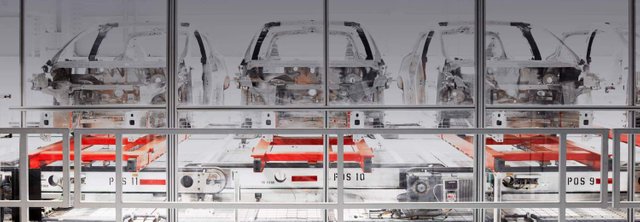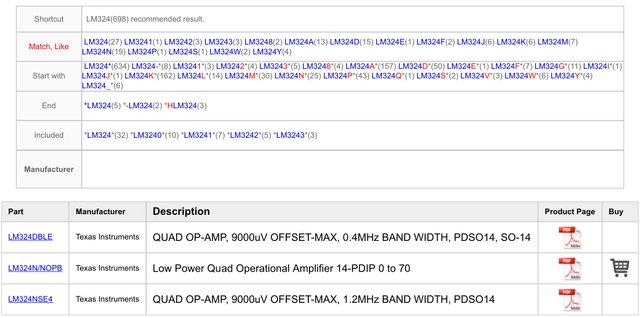
Tesla’s stock took a tumble today after a report from CNBC claimed that the automaker was suffering from an increasing number of ‘flawed Model 3 parts’ and relied on “remanufacturing” to fix the issues. Tesla later issued a full response – embedded below.

A few weeks ago, CNBC published another report claiming that “more Model 3 delays and quality issues are coming” based on unnamed sources. Tesla denied the claim with a long statement.
Today’s situation is very similar since the same CNBC reporter is again claiming issues with Model 3 parts based on unnamed current and former Tesla employees while the automaker is again denying the claims in a long statement.
The new report is called ‘Tesla employees say automaker is churning out a high volume of flawed parts requiring costly rework‘ and it claims that Tesla is adding remanufacturing technicians and engineers to support the higher volume of defective parts.
It alleged that “40 percent of the parts made or received at its Fremont factory require rework.”
Tesla denied the claim and stated that CNBC is confusing “remanufacturing” and “rework”:
“Remanufacturing is a process that literally every automaker on earth performs. CNBC is extracting a few lines from two job descriptions posted online and making gross assumptions about the roles that are inaccurate. Our remanufacturing team is very small, comprising only 0.1% (40 people) of our nearly 40,000 employees. Any “expert” claiming there is something unusual about our remanufacturing or that it has something to do with the quality of cars that come off a production line is either very confused or just completely wrong. In reality, like other automakers, Tesla remanufactures parts because doing so uses fewer materials and less energy than building a new part from scratch. It is undeniably a good thing that is ultimately better for the environment and if well done is equally good for the customer.”
In the report, CNBC also says that Tesla “downgraded” its production goal from 20,000 units per month in December to 2,500 units per in March.”
In January, Tesla actually changed its production rate goal to 2,500 units per week (~10,000 per month) by the end of March.
The company’s current production rate for the Model 3 is still unknown, but they will have to update us during the first week of April.
**Our goal is to produce perfect cars for every customer. That is why we review every vehicle for even the smallest refinement and conduct extensive end of line quality checks before a customer takes delivery of their car. Nothing speaks to this more than the fact that Tesla has the highest customer satisfaction levels and the highest percentage of customers who say that their next car will be a Tesla in the entire global auto industry. We care about even the smallest imperfections like a slight paint gloss texture or a wheel alignment check.
CNBC’s recent story on quality at Tesla completely misses this critical point. In what world is the pursuit of perfection looked down on? Not one we want to live in.
As an example, every Model S or Model X on the assembly line must pass through hundreds of inspection and test points. In order to ensure the highest quality, dedicated inspection teams track every car throughout every shop in the assembly line to document and address potential issues. Towards the end of the line, every vehicle is then subjected to an additional quality control process involving more than 500 other inspections and tests.
The majority of issues identified at the end of line inspection are extremely minor, and are resolved in a matter of minutes. That said, we’re working to reduce this work and make the process as efficient as possible. We then feed these improvements back to production in a pursuit of perfection.
This is reflected in the overall efficiency of the factory, which has improved dramatically. For example, the number of labor hours needed to complete a Model S or Model X vehicle has decreased. Whereas before, it took three shifts with considerable overtime to produce 100,000 Model S and X vehicles, now it can be done with only two shifts and minimal overtime.
Moreover, CNBC’s focus on remanufacturing has nothing to do with the quality of our cars. Remanufacturing is a process that literally every automaker on earth performs. CNBC is extracting a few lines from two job descriptions posted online and making gross assumptions about the roles that are inaccurate. Our remanufacturing team is very small, comprising only 0.1% (40 people) of our nearly 40,000 employees. Any “expert” claiming there is something unusual about our remanufacturing or that it has something to do with the quality of cars that come off a production line is either very confused or just completely wrong. In reality, like other automakers, Tesla remanufactures parts because doing so uses fewer materials and less energy than building a new part from scratch. It is undeniably a good thing that is ultimately better for the environment and if well done is equally good for the customer.**
Electrek’s Take
Those two reports from CNBC certainly had a few issues and in this case, they are definitely confusing the role of part remanufacturing.
But with this said, Tesla definitely still has issues with Model 3 productions and those reports appear to be byproducts of those issues.
Now, despite Tesla’s claims of ‘hundreds of inspection and test points’, we have received a few reports of Model 3 owners not happy with the state of their vehicles at delivery. Though, that’s mostly anecdotal evidence and based on that, we have received way more reports of customers more than happy with their vehicles.
I estimate that Tesla delivered anything between 5,000 to 8,000 Model 3 vehicles since starting production last year. It’s not surprising that a few slipped through the cracks, but I wouldn’t say that it is a widespread issue in any way.
Though we have previously reported on several Model 3 service bulletins to replace parts on new cars being delivered, but those were especially focused on early vehicles made in 2017. It seems to have slowed down in 2018.
Either way, we should have a much better idea of the state of Model 3 production in just 3 weeks.

